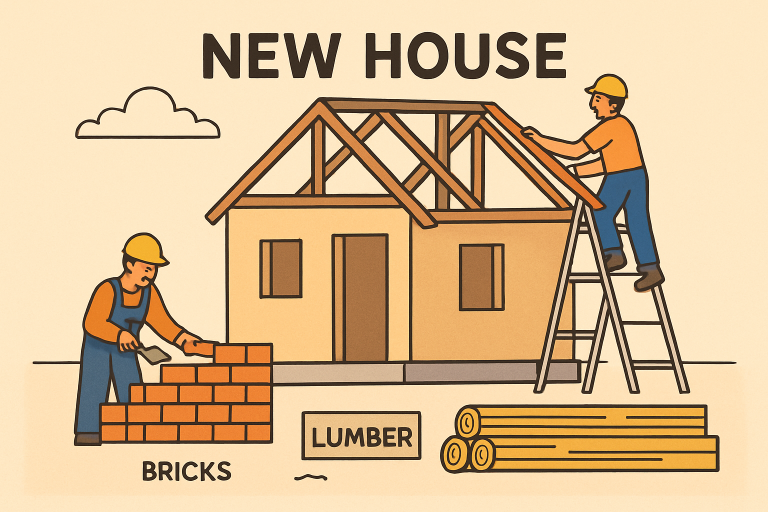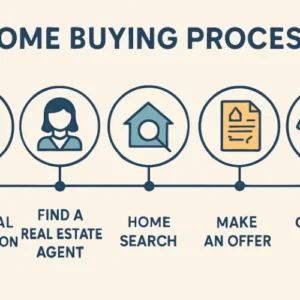Key Takeaways
- Thoroughly research home builders for reliability and quality.
- Use a real estate agent who specializes in new construction deals.
- Be aware of all potential costs, including hidden fees and the terms of any financing.
- Get an independent inspection before closing.
- Carefully review contracts and builder warranties before signing.
Purchasing a new construction property is an exciting opportunity to find a place tailored to your lifestyle and preferences. From picking finishes to choosing a floor plan, building a home from the ground up opens doors to personalization and modern features. However, with unique advantages come specific challenges, making it essential to enter the process well-informed. If you’re considering new construction Wichita, understanding the ins and outs can help you avoid pitfalls and ensure a smooth buying experience.
Unlike buying an existing home, a new construction purchase involves working closely with builders, navigating unfamiliar contracts, and managing various costs associated with the project. The choices are numerous, but so are the responsibilities—contract terms can be complex, timelines are subject to change, and the quality of construction varies among builders. Gathering the right insights early on can save you significant time and money, and protect your investment for years to come.
Many buyers are surprised to learn that builder warranties, construction timelines, and even community features can change throughout the process. Being prepared and proactive in your approach to new construction can make all the difference between a dream home and unexpected issues.
Researching Builders
The cornerstone of a successful new construction purchase is finding the right builder. Not all homebuilders share the same standards for quality, reliability, or customer service. Start by examining builder reputations online—search for reviews on platforms like Google, the Better Business Bureau, or homebuyer forums. Whenever possible, speak with residents in communities built by your shortlisted builders to gauge overall satisfaction and ask about ongoing property issues.
It’s also vital to check for legal disputes, complaints, or regulatory violations. Reliable builders will typically have established portfolios and a positive reputation through word of mouth. Take the time to compare their completed projects to see if their design style aligns with your vision. A deep dive now will protect you from costly regrets later.
Engaging a Real Estate Agent
While it might be tempting to work directly with the builder’s agent or staff, it’s wise to retain your own real estate agent—preferably one experienced in new construction transactions. Your agent acts as your advocate, negotiating upgrades and ensuring your interests are represented throughout the process. They bring a nuanced understanding of construction-specific contract clauses and can highlight potential issues before you commit.
An agent can also assist with timing, helping to coordinate your move-in date with the builder’s completion estimates, and will often notice costly pitfalls or upgrade traps that first-time buyers overlook.
Understanding Financial Implications
The sticker price of a new home is rarely the final price you’ll pay. Builders often advertise a base price that excludes upgrades for appliances, materials, or design features that buyers commonly desire. Assess the full cost of any floor plan you’re considering by listing all must-have upgrades. Don’t forget to ask about landscaping, driveways, fencing, or window coverings, which may not be included.
If the builder offers in-house financing, compare these terms with offers from independent mortgage companies. The most competitive mortgage may not come from your builder. Be sure to ask about HOA fees and future property tax increases, as initial tax assessments might be based solely on the unimproved land. Factoring in all these elements ensures a realistic grasp of your new home’s total cost.
Conducting Independent Inspections
New does not always mean flawless. Builders may assure you that city or county inspections guarantee quality, but hiring an independent inspector gives you an extra layer of protection—schedule inspections at various construction stages—foundation, framing, and final walkthrough. Inspectors identify latent issues, such as HVAC installation problems, misaligned walls, or subpar insulation, which can be difficult and expensive to rectify later.
Catching problems before closing makes it easier for the builder to remedy them at no additional cost to you, and can safeguard your investment for the long run.
Reviewing Contracts and Warranties
Construction contracts differ from standard real estate agreements, often favoring the builder. Carefully review and negotiate contract details, paying special attention to the penalty clauses for project delays, descriptions of work, and your rights if you wish to back out or encounter builder default. Insist that all verbal promises, discounts, or concessions be added in writing.
Warranty terms can provide peace of mind if outlined properly. Understand what is covered and for how long, and clarify the process for reporting warranty issues after closing. Being thorough now helps prevent costly and frustrating surprises down the line.
New construction homes offer a unique opportunity to tailor your living space to your needs, but success lies in vigilance at every step. By conducting thorough due diligence, leveraging the expertise of an experienced agent, and insisting on comprehensive inspections, you can enjoy peace of mind and a high-quality home that’s built to last.




